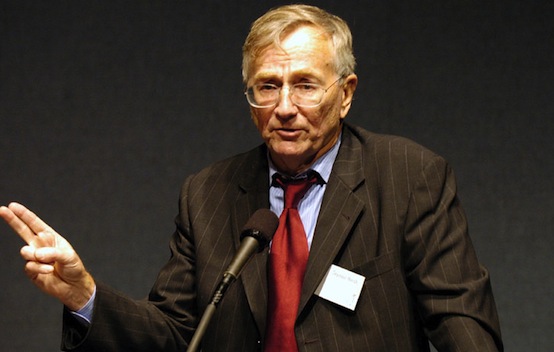When people are comforted by government lies, trafficking the truth becomes hellishly difficult. Disclosing damning facts is especially tricky when editors en masse lose their spines. These are some of the takeaways from legendary Seymour Hersh’s riveting new memoir, Reporter.
Shortly before Hersh started covering the Pentagon for the Associated Press in 1965, Arthur Sylvester, the assistant secretary of defense for public affairs, berated a group of war correspondents in Saigon: “Look, if you think any American official is going to tell you the truth, then you’re stupid. Did you hear that? Stupid.” Hersh was astonished by the “stunningly sedate” Pentagon press room, which to him resembled “a high-end social club.”
Hersh never signed on to that stenographers’ pool. He was soon shocked to realize “the extent to which the men running the war would lie to protect their losing hand.” Hersh did heroic work in the late 1960s and early 1970s exposing the lies behind the Vietnam War. His New Yorker articles on the My Lai massacre scored a Pulitzer Prize and put atrocities in headlines where they remained till the war’s end.
Hersh’s 1974 expose on the CIA’s illegal spying on Americans helped spur one of the best congressional investigations of federal wrongdoing since World War II. (Many of the well-written reports from the Senate Select Committee to Study Governmental Operations with Respect to Intelligence Activities remain regrettably relevant to the Leviathan in our time.) By the late 1970s, despite revelations of CIA assassinations and other atrocities, Hersh was chagrined that “[n]o one in the CIA had been prosecuted for the crimes that had been committed against the American people and the Constitution.” Welcome to Washington.








